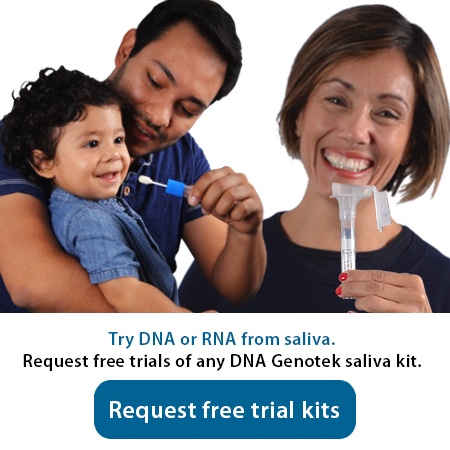2010-02-09
Every day, it seems, scientists learn something new about how our genes work. One fascinating area of research involves understanding the role of our genes in the initiation, progression and treatment of diseases; such as cancer. Understanding cancer on a molecular and genetic level makes for good science and good medicine. We understand that all cancers are not created equally. From the moment you are conceived, your genes may increase your susceptibility to developing certain cancers or, later on, your environmental exposures or other factors may cause changes in your genes that cause cancer to develop. Cancer is not one disease, but many, adding to the complexity and breadth of studies.
Research is the best way to fully understand the mechanics of this disease and ultimately develop better strategies to combat it. Scientists and clinicians alike are constantly working to learn more about the role of genetics in cancers so they can improve treatment options and health outcomes for patients. The study of genes and cancer all share a fundamental requirement - they all need DNA.
The collection and analysis of DNA from blood and tissue have long been considered the golden standards in cancer research studies. Obtaining high quality genomic DNA is critical for studies that aim to evaluate the role of genetic factors in cancer. However, cancer research studies often require very large numbers of samples from a dispersed population and non-invasive methods for DNA collection. Saliva samples, which are painless for the donor and relatively easily collected, are quickly becoming the preferred choice.
Oragene/saliva collection kits are the product of choice for many cancer researchers who require a safer, simpler mechanism for collecting genetic samples than the traditional method of blood collection. This method of DNA collection is highly desirable in certain patient groups (e.g., children, those fearful of venipuncture, geographically dispersed study populations, or as a back up source of DNA in studies that collect blood).
Oragene kits are being used today in a wide variety of cancer studies including those investigating candidate genes and inherited risk family studies. Oragene is well suited for cancer research applications including:
- Genetic Research: to identify genetic targets for therapy or diagnostics;
- Genetic Screening: to help determine who is at high risk of developing cancer and who would have the better prognosis;
- Pharmacogenomics: to determine the influence of genetics on treatment choice and disease prognosis.
One example of the type of cancer research that is benefiting from non-invasive DNA sample collection is breast cancer. One such research study was published in 2009: Christine B. Ambrosone, Gregory L. Ciupak, Elisa V. Bandera, et al., "Conducting Molecular Epidemiological Research in the Age of HIPAA: A Multi-Institutional Case-Control Study of Breast Cancer in African-American and European-American Women," Journal of Oncology, vol. 2009, Article ID 871250, 15 pages, 2009. doi:10.1155/2009/871250.
The authors of this research conducted a case-control study with the goal of recruiting 1200 African American and 1200 European American women with breast cancer and an equal number of controls in order to evaluate numerous risk factors for early/aggressive breast cancer and to evaluate the distribution of these risk factors within and across racial/ethnic groups. They initially collected blood samples which were processed and stored in the laboratory at the Mount Sinai School of Medicine. In 2007, to reduce costs and to facilitate participation, they transitioned to collection of saliva using Oragene/saliva collection kits for DNA extraction. The authors state: "These collection kits yield large quantities of high quality DNA, comparable to that obtained from whole blood."
At , we're committed to creating educational resources for researchers involved in cancer genetics and to facilitate the sharing of best practices for DNA collection. If you have information to share or would like to contribute to this blog, please send us your suggestions and ideas.
We'll be posting more articles on saliva DNA collection methods for cancer research in the coming weeks. Don't forget, The Genetic Link has subscription options; you can follow by email or RSS feed.


